 Like most “creatives,” I have an impulse — maybe a compulsion — to make things. I’ve often reflected on the nature of this impulse, wondering why I simply feel in my bones that I need to do this.
Like most “creatives,” I have an impulse — maybe a compulsion — to make things. I’ve often reflected on the nature of this impulse, wondering why I simply feel in my bones that I need to do this.
I think in some ways it’s about mortality. Our existence is temporary and fleeting. We want to leave a mark on the world. Something that says “I was here.” The impulse to leave a mark often takes a dark turn, but even when it doesn’t, the fragility of our modern world calls into question the extreme vanity of thinking that somehow your existence matters enough that you need to construct monuments to yourself.
But in my case, there’s an even weirder element to the impulse. Nothing I make exists. That is, it doesn’t exist as physical objects. The closest I come, I guess, is if I print out a piece of sheet music I’ve composed. But unlike a painter, a sculptor, a knitter, a builder… the things I make are even more fleeting and ethereal than my own existence.
Sound waves in the air. Momentary flashes of pixels on a screen. The flow of electrons inside computer chips. None of it is real outside of the moments someone experiences it. And worse, most of it is dependent upon the right hardware and software continuing to operate to manifest those moments again in the future. And all of it depends on electricity.
Intermittently through the years I have run an online shop where I sell merchandise featuring my designs, all created on a computer. I just launched a new one. But I don’t make the products. I certainly am not stitching together the t-shirts or firing the coffee mugs in a kiln or… doing whatever it takes to physically create a sticker. I’m not buying the blank merchandise and printing my designs on it. I’m not even warehousing stock. Everything I sell is print-on-demand, and the “photos” of the merchandise on the site are just composites created by the fulfillment vendor’s software.
That gave me the idea for this t-shirt. It doesn’t exist. And as long as no one ever orders one, it will stay that way.